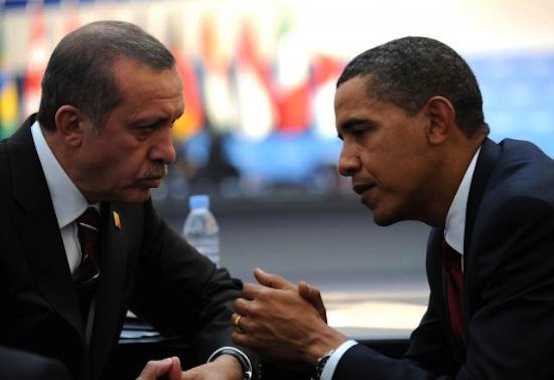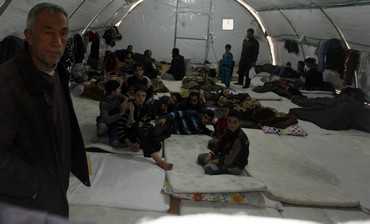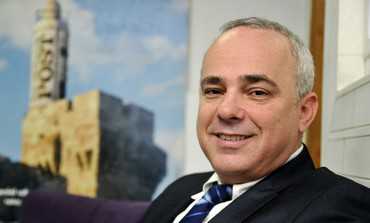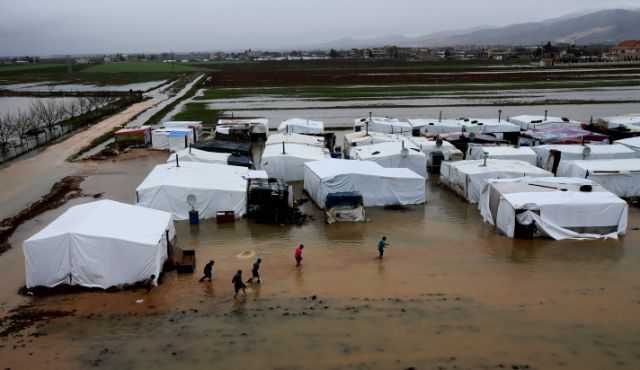Syrian refugees are pictured at Kilis refugee camp in Gaziantep, Turkey, on Nov. 1. An estimated 150,000 Syrians are reported to be living in the Turkish border town.
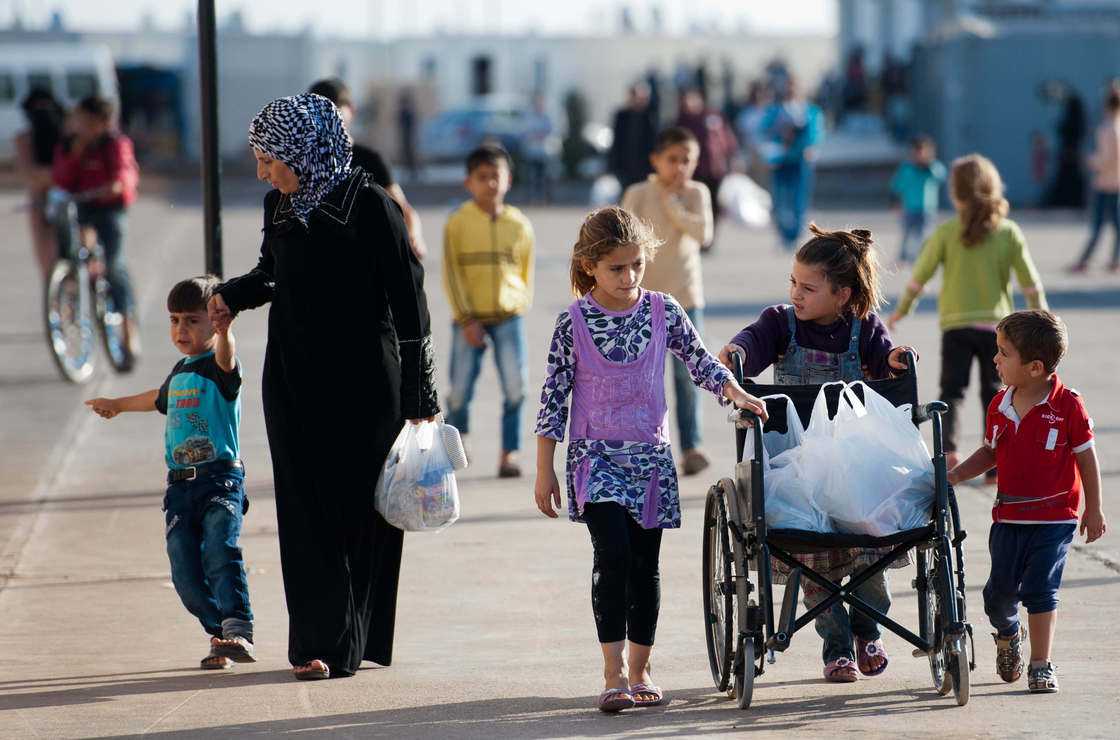
Maurizio Gambarini/DPA/Landov
There is a brain drain in Syria, an exodus of the skilled and the educated as the Syrian revolt grinds into a third year.
The health care system is one casualty, as hospitals and clinics are shelled and doctors flee the country.
The business community is another — particularly in Aleppo, Syria’s largest city and once the country’s industrial and financial hub.
As Aleppo was dragged into the war, many in the business community fled to southern Turkey, less than a two-hour drive away. Gaziantep, a Turkish border town, has become a new hub for Syrian businessmen.
At the recent opening of a new restaurant in Gaziantep, the excitement among Syrian exiles was all about the white creamy sauce served with the spicy chicken.
Syrians flocked to the recent opening of a new restaurant in Gaziantep serving a creamy garlic sauce known as creme toum. It’s a sign that some Syrians are beginning to think about Gaziantep as more than just a temporary home.
Deborah Amos/NPR
“Garlic, very important with chicken,” insisted customer Ahmad Showah, who has longed for Syrian cuisine since he came to Turkey seven months ago. For him, the traditional Syrian sauce was part nostalgia, part identity — a powerful reminder of home.
“Garlic, eggs, oil and spices,” said restaurant owner Mohamad Serjeh, listing the ingredients of Syria’s “special” sauce as he piled plates with crispy chicken. Serjeh brought his stainless steel chicken roasters from his ruined shop in Aleppo and opened the first Syrian restaurant in this Turkish border town.
More than 150,000 Syrians now live in Gaziantep, with more arriving. So Serjeh had a full house on opening day.
“There are about 17,000 Syrians here who have the wherewithal to buy this kind of food,” Serjeh said, “so we hope for a good success.”
That’s his rough calculation of Syrian exiles with means in just one Turkish town. Official data from the Turkish banking agency shows that Syrians have deposited almost $4 billion in Turkish banks — some of the cash transferred across the border on the backs of mules, packed by Syrians in a hurry to get money out. As the war has intensified, more than 400 factories have shut down.
Fuad Barazi is among the latest arrivals in Gaziantep. He owned a furniture store, a once-prosperous family business, in Aleppo. Barazi stayed as long as he could, caring for his elderly parents while delivering humanitarian aid. But a few weeks ago, he decided he had to get out of Aleppo.
“Last few months, it was devastating — horrible, actually. The bombs very near to us, power, no water. Also, and I have a sick dad, so I had to come,” Barazi said.
For the moment, he and his family are recovering from their ordeal, and not thinking of how long to stay in Turkey. But Barazi and others like him from Syria’s business elite are wondering when they can go back and rebuild the country’s economy — and, more broadly, what kind of country will Syria become.
The answers will determine Syria’s recovery, said Soli Ozul, a Turkish political commentator.
“When the best leave, then you end up with the brutes,” Ozul said. “I just don’t know how much of that elite went out and how many of them will want to return after, at least, there is a regime change.”
For now, Aleppo’s loss is Turkey’s economic gain, certainly in Gaziantep, a city with historical links to Syria. In Ottoman times, Gaziantep was part of Aleppo province.
And once again, the Turkish border city is intertwined with Syria. The Sanko Park mall was built a few years ago to cater to Syrians who easily crossed the border to shop on weekends. Now, more than 30,000 Syrian businessmen have come to Turkey to escape the war — attracted by government policies that allow them to open factories and offices and make lucrative deals, said Barazi, the furniture store owner.
Can Aleppo recover if the business community stays in Gaziantep?
“I guess not, because the businessman plays a major role in Aleppo,” Barazi said. “Aleppo will not survive without the businessmen.”
But even Barazi can’t say yet whether he will go back to rebuild what was once Syria’s financial capital.


